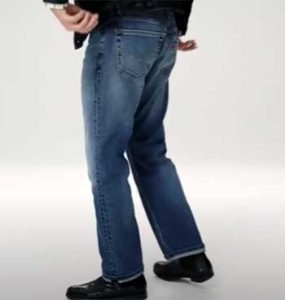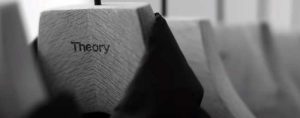With price tags reaching over $100 for t-shirts and $200 for hoodies, Psycho Bunny has earned a reputation as one of the most expensive clothing brands on the market. But what exactly justifies the steep prices that can cost as much as high-end designer labels?
A closer look reveals several key factors that drive the premium pricing of Psycho Bunny apparel and accessories. By understanding the roots of the high costs, we can better evaluate if the investment lives up to the hype.
Reasons For Psycho Bunny So Expensive
Here is a list of those reasons:
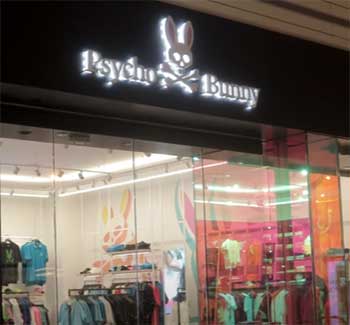
- Uncompromising Quality Sets the Foundation
- Ethical Production Carries Real Costs
- Clever Design and Creative Talent
- Mass Production Limits Exclusivity
- Demand Drives Desirability
- Targeted Celebrity Marketing
- Perceived as Youth Culture Status Symbol
- Supply Chain Drives Up Costs
- Labor Intensive, Low Yield Production
- Not Skimping on Details
- Built for Long-Term Profitability
- Paying for Intangibles
- And many more!
Let’s talk about these reasons in detail.
- Uncompromising Quality Sets the Foundation
The foundation of Psycho Bunny’s premium pricing starts with the use of top-notch materials to craft unmatched quality clothing built to last. Psycho Bunny sources exceptionally soft, durable fabrics rarely found in cheaper brands, like:
- Pima cotton – With extra long staple fibers, Pima cotton is one of the smoothest, silkiest cotton materials available. It feels luxurious against skin and maintains its integrity over years of wear.
- Merino wool – Known for its softness, temperature regulation and resistance to odor, merino wool used by Psycho Bunny is exceptionally fine and comfortable.
- Cashmere – Psycho Bunny blends ultra-soft cashmere into some knits and sweaters, setting them apart from cheaper acrylic blends.
- Premium denim – For their jeans and jackets, Psycho Bunny uses high-end denim woven with long staple cotton and sometimes even blended with lyocell for an extra smooth feel.
These premium materials command higher market prices, driving up manufacturing costs. But the result is clothing unmatched in comfort and durability.
Unlike fast fashion brands that pill, fade and stretch out quickly, Psycho Bunny apparel maintains its shape, softness and rich colors even after years of wear. You’ll reach for these pieces season after season.
- Ethical Production Carries Real Costs
Another big factor behind the pricing is Psycho Bunny’s commitment to ethical production standards. They partner with factories that pay fair wages and provide safe, comfortable working environments. The facilities utilize renewable energy to reduce environmental impact.
While ethical manufacturing raises production expenses, it results in higher-end clothing made with care by fairly compensated artisans.
Psycho Bunny customers can feel good knowing their purchases didn’t exploit other human beings or the planet. These moral standards don’t come free – but for many buyers, it’s an important reason to support the brand.
- Clever Design and Creative Talent

The novel, irreverent designs also influence the pricing. Psycho Bunny invests heavily in creative talent to develop unique prints and logos you won’t find anywhere else.
The brand spends significant time and money perfecting edgy motifs and cheeky themes that embody the irreverent Psycho Bunny attitude.
This focus on innovative design requires resources mass market brands don’t spend. When you buy a Psycho Bunny piece, part of what you pay for is the clever creativity baked into every bunny-fied aesthetic detail.
- Mass Production Limits Exclusivity
Psycho Bunny also deliberately limits production runs to maintain an aura of exclusivity. They produce all apparel in small batches, avoiding endless mass production. This ensures each item feels special – you likely won’t encounter someone wearing the exact same t-shirt or hoodie.
The limited production increases costs by reducing economies of scale. But for Psycho Bunny fans, knowing your piece is rare raises the perceived value. You’re buying something unique that won’t be replicated millions of times over.
- Demand Drives Desirability
Psycho Bunny also generates value from intangible factors like brand image and desirability. The company has strategically built up its reputation as an aspirational label, especially among younger demographics.
Psycho Bunny clothes are seen as stylish badges of nonconformity. The edgy, rebellious vibe strikes a chord with audiences looking to express individuality through premium apparel.
This desirability allows the brand to charge elevated prices typical of luxury streetwear. Customers pay premium rates because they connect with the attitude and sense of exclusivity.
- Targeted Celebrity Marketing
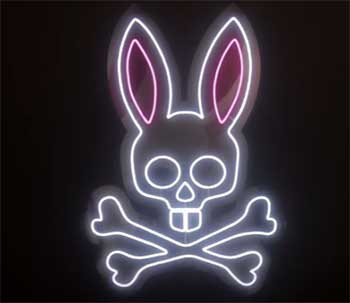
Like any luxury brand, Psycho Bunny boosts its credentials through celebrity marketing.
The company has cultivated brand ambassadors among famous musicians, athletes and influencers who promote Psycho Bunny to their followers.
Seeing their favorite stars rocking Psycho Bunny gear increases demand and justifies the higher costs.
Psycho Bunny caters specifically to demographics passionate about music, arts and street culture. The brand strategically targets collaborations to build clout in those communities.
- Perceived as Youth Culture Status Symbol
Within its niche audience, Psycho Bunny has achieved status as a status symbol conveying taste, lifestyle and disposable income. For teenagers and 20-somethings passionate about streetwear and youth culture, Psycho Bunny carries a prestige value.
The high prices denote the wearer has the means to access this socially prized label. While not universally considered a status symbol, Psycho Bunny enjoys that perception among key demographics – enabling premium pricing power.
- Supply Chain Drives Up Costs
Some of the pricing comes down to the complexities of Psycho Bunny’s supply chain. As a smaller brand, they cannot demand the economies of scale that mass market producers enjoy. Sourcing small batches of specialty fabrics and manufacturing in select facilities keeps production costs high.
Global supply chain issues since 2020 have caused expenses to rise across every industry. Psycho Bunny’s complicated logistics result in natural price inflation beyond basics producers. The costs add up for a brand producing limited runs of meticulously designed clothing in select materials.
- Labor Intensive, Low Yield Production
Adding to supply chain costs, Psycho Bunny apparel often requires very labor intensive manufacturing. Some pieces involve delicate embroidery, leather trims, silk screening and other artisanal touches. These raise labor costs drastically compared to simply churning out cheap t-shirts.
Complex designs also increase manufacturing waste and defects, reducing yield. So each finished product must carry a higher price tag to account for cost overruns. The hand crafted nature of Psycho Bunny clothing necessitates passing these expenses to the consumer.
- Not Skimping on Details
Psycho Bunny sweats the small details in a way fast fashion brands don’t bother. All their clothing incorporates specially developed trims and accessories not found on cheaper apparel. Little touches like custom zipper pulls and engraved metal buttons add personality.
While small flourishes, these details add up in overall production costs. But they provide tangible value for customers seeking premium clothing with personality. It’s easy for a basic t-shirt brand to hit lower price points by stripping details to the bone.
- Built for Long-Term Profitability
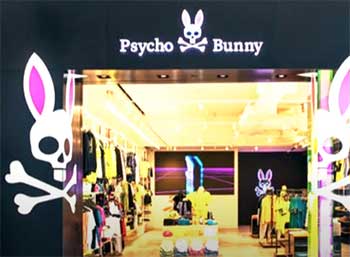
As a company positioning for long-term growth, Psycho Bunny doesn’t compete to offer the absolute lowest prices.
The elevated pricing ensures profit margins adequate to sustain and expand the business.
Some brands chase quick growth by selling high volumes at razor thin margins.
Psycho Bunny plays the long game, even if that means lower sales volumes.
The healthy profit margins provide stability while enabling investments to perfect designs and manufacturing.
In a crowded apparel market fighting for relevance, Psycho Bunny has staked out a niche where higher prices enable quality, ethical production and lasting brand value.
- Paying for Intangibles
Part of what enables Psycho Bunny to command premium pricing is the intangible sense of identity and emotional satisfaction customers derive from owning the edgy, irreverent clothing.
Unlike basic apparel, Psycho Bunny taps into aspirations for self-expression and nonconformity. For the target niche audience, wearing Psycho Bunny is about communicating personality and lifestyle values. This emotional engagement adds higher perceived worth that rationalizes the prices.
- Comparing Value vs Basic Apparel
When judging the value of Psycho Bunny clothing, it helps to compare against basic apparel brands churning out commoditized designs. A graphic tee with an original bunny motif and quirky details understandably costs more than a 3-pack of plain Gildan t-shirts.
You’re paying more for creativity, unique materials, ethical production and lasting quality – not just a generic blank t-shirt. Psycho Bunny delivers a premium product stacked with tangible and emotional value beyond basics.
- Weighing the Price Tag
For loyal Psycho Bunny fans who prioritize quality fabrics, imaginative design and ethical manufacturing, the price tags often feel justified. Devotees happily pay more to access the unique attitudes, culture and irreverent humor woven into the clothing.
Of course, shoppers on tighter budgets may have difficulty rationalizing the costs. Thankfully, more affordable alternatives exist. Yet for those able to invest in apparel, Psycho Bunny occupies a niche where its pricing power remains strong based on enduring brand appeal and product quality.
- A Matter of Priorities
At the end of the day, assessing the value of Psycho Bunny comes down to personal priorities. For some, clothes are first and foremost a basic necessity for covering the body – and premium prices make little sense.
But fans of Psycho Bunny assign more meaning to apparel as a representation of personality and lifestyle. For these consumers, the higher costs directly translate to tangible and emotional value they derive from wearing the edgy, irreverent label.
While not universally affordable or appreciated, Psycho Bunny has carved out a market niche where enough people connect deeply with the branding and styles. For devotees seeking more than basic commodity apparel, the premium quality, ethical production and imaginative designs carry real worth.
- Long-Term Cost Per Wear
Looking at cost per use over years, Psycho Bunny pieces often justify the investment. A $125 graphic tee that’s worn weekly for 5 years before retiring cost just $6 per year’s worth of use. Compare that to replacing cheap tees annually.
For those who will truly cherish and frequently wear Psycho Bunny items for seasons on end, the higher upfront price melts away over the long run. Cost per wear brings down the overall investment when factoring in durability.
- Price Holds Value on Resale Market
Psycho Bunny apparel also retains value in secondary markets should you ever want to re-sell pieces. Because of the brand cachet and limited production runs, used Psycho Bunny goods often garner premium prices on sites like Grailed.
So you can feasibly recoup much of your original spending. This gives buyers confidence in the pricing, knowing pieces hold resale value for years after purchase.
Worth Splurging On Your Passion?
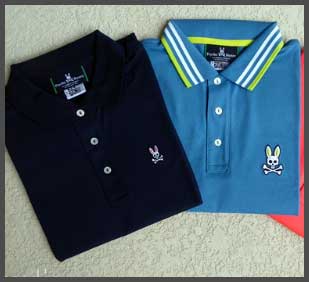
For the devoted niche audience who feel passion for the Psycho Bunny brand, the elevated costs represent money well spent.
Just as movie buffs splurge on first release tickets or gamers invest in advanced gear, Psycho Bunny fans get satisfaction from acquiring the latest drops.
When you obsess over a hobby, elevated pricing often feels justified.
Psycho Bunny speaks directly to audiences who assign real meaning and derive joy from rocking the irreverent gear.
For those devotees, Psycho Bunny is well worth splurging on.
Also Read: Comparison of Transfer Express And Supacolor.
Frequently Asked Questions (FAQ)
Psycho Bunny stands out for its premium materials like Pima cotton, clever and irreverent designs, ethical manufacturing practices, and brand cachet among younger demographics. Its unique persona and high-quality clothes justify the higher pricing for fans.
Psycho Bunny prices tend to range from $100 – $200 for most apparel items. T-shirts typically cost around $125, while hoodies go for approximately $198. The high prices are due to the specialty fabrics, limited batches, and aspirational branding.
While not a traditional luxury fashion house, Psycho Bunny is viewed as a contemporary designer clothing brand. It occupies a premium segment of the apparel market due to its materials, manufacturing approach, and brand image. Psycho Bunny sits at the intersection of streetwear and high-end casual fashion.
Psycho Bunny sources its fabrics from high-end textile mills around the world. The clothes are manufactured in factories in China, Haiti, Los Angeles and New York using ethical practices to ensure fair labor standards and environmental sustainability. The unique designs are developed in-house by the Psycho Bunny creative team.
Final Verdict: You Get What You Pay For
Based on the quality materials, ethical manufacturing, imaginative designs, brand aura and customer passion – Psycho Bunny sets prices aligned with the value delivered. While decidedly not affordable fast fashion, Psycho Bunny offers differentiated value.
For the devoted niche audience, Psycho Bunny’s premium pricing lives up to the reputation. When you consider everything that goes into creating fun, edgy clothing built to last, the steep costs become understandable, if not always accessible.
But for those able to invest, rest assured Psycho Bunny lives up to the hype. In the end, you truly get what you pay for.

